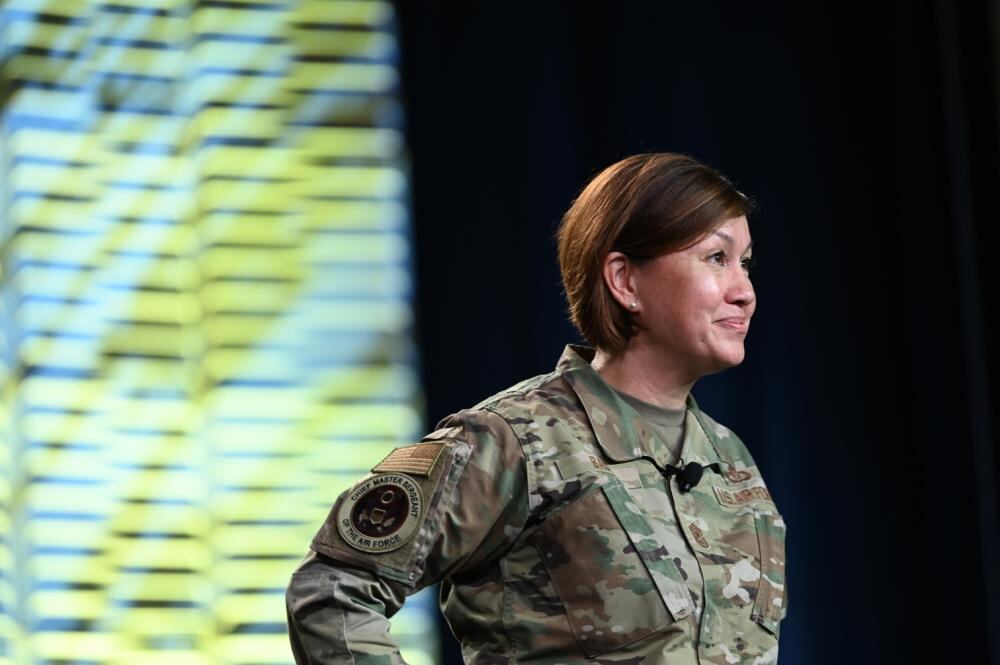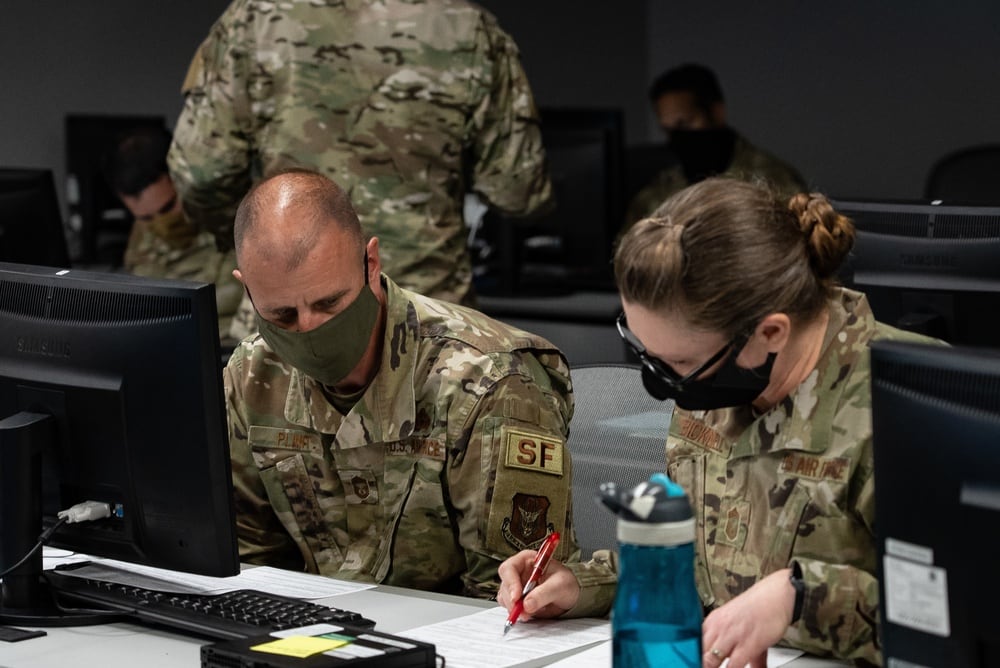Technology glitches and delays continue to plague the Air Force’s attempt to launch new performance evaluation software, after almost a year of struggling to get the program up and running.
Some worry the problems will ultimately hurt the airmen and Space Force guardians who rely on the routine evaluations to open up new job and promotion prospects.
The Air Force and Space Force wanted the new myEval system to replace an older version, known as vPC, as a more automated, cloud-based database for performance reviews.
RELATED

It would offer features that have become standard in commercial software, like click-to-sign functionality. The system is also supposed to automatically pull in information from the centralized personnel data system and other programs like myFitness, which tracks airmen’s fitness test scores.
The service first opened myEval to airmen and guardians in February. By the end of May, all were supposed to have started using it to log performance reviews.
Problems persisted through the summer, however. MyEval wasn’t properly beta tested ahead of time and was clunky, slow and confusing to navigate. Features that were promised hadn’t materialized.
“I’ve spent … countless hours learning the system that has no manuals, vague guidance, never-ending errors, and little to no capacity to support our needs,” someone who claimed to work for the Air Force Personnel Center said Wednesday in an anonymous post on the popular “Air Force amn/nco/snco” Facebook page.
“When you wonder why retention rates are so low, please stop yourselves from going any further,” they continued. “It’s decisions like this that truly influence the Air Force culture and make individuals choose leaving versus staying.”
Senior Air Force leaders pledged in September that an improved “myEval 2.0″ would replace the first version on Oct. 1. That date came and went without marked change as well.
RELATED

Now, the Air Force aims to make do with a “simplified” version of myEval 2.0 that is slated for release in “early 2023,” service spokesperson Tech. Sgt. Deana Heitzman said Tuesday.
“Right now, [the Air Force’s personnel branch] is working on the IT infrastructure to ensure a successful rollout,” Heitzman said. “The simplified version will be more user-friendly and intuitive.”
She declined to answer what the interim version will not offer that the full version would.
Airmen have groused about the complications in online forums and raised the issue to the service’s top enlisted leader and the vice chief of staff in a recent question-and-answer session.
One defender on Facebook, Richard Hart, commented that anyone who submitted review records through yet another platform instead — known as the Case Management System — would have had them ready on time for the various selection boards that decide who will move onto new opportunities.
RELATED

Others have simply thrown up their hands.
“I have reached the phase of acceptance,” Facebook user Anna Daily commented on the anonymous Facebook post. “I will not struggle with the system. I will wait until someone tells me what they would like me to do. I’ve stressed enough over the last 16.5 years.”
The issues have stopped the Air Force from implementing other changes to how its members are judged on their work.
It planned to begin requiring troops to write in full paragraphs on their self-evaluations alongside the myEval 2.0 rollout on Oct. 1. That switch away from bullet-list reviews did take place, while myEval lags behind.
RELATED

So-called “airman leadership qualities” will become the criteria for performance reviews in the same time frame as next year’s myEval 2.0 release, Heitzman said.
In February, the Air Force announced it would establish a schedule for conducting job reviews by rank. The new review criteria will take effect for colonels starting in February 2023, and for other officer ranks throughout the year thereafter, and for chief master sergeants in May 2023, with other enlisted ranks to follow.
Airmen online continue to voice similar concerns about other software initiatives like myDecs, myFitness and myLearning. Respectively, those aim to replace legacy systems for human resources management, physical fitness testing data and online training.
“If we built planes the way [my Force Support Squadron], myEval, myDecs was built, our pilots would be dead,” the anonymous Facebook post said. “I am begging and pleading … please stop!”
Rachel Cohen is the editor of Air Force Times. She joined the publication as its senior reporter in March 2021. Her work has appeared in the Washington Post, the Frederick News-Post (Md.), Air and Space Forces Magazine, Inside Defense, Inside Health Policy and elsewhere.









